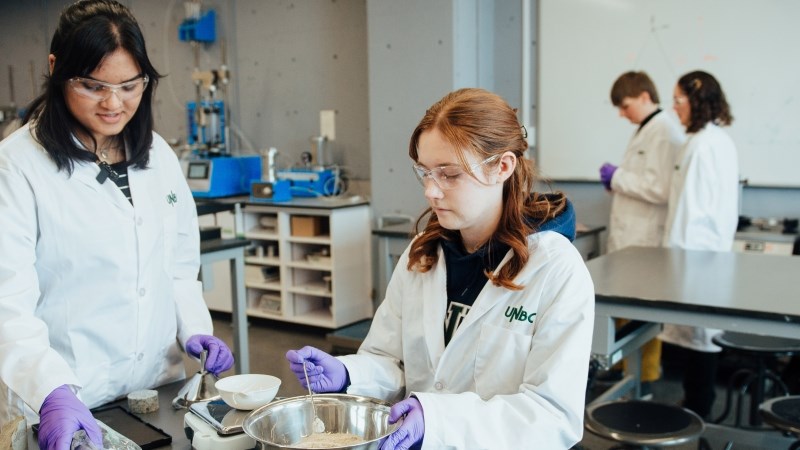Many, if not all, graduates of post-secondary institutions are hit with the age-old question of "what now?"
However, recent funding obtained by the University of Northern British Columbia aims to help STEM students answer that question far easier
UNBC is a co-applicant in two post-secondary national networks that have been awarded Lab to Market grants totaling $54.9 million.
The five-year grants are given out by the Natural Sciences and Engineering Research Council of Canada, The Canadian Institutes of Health Research, and the Social Sciences and Humanities Research Council.
“These grants come from the federal government and they are to fund two networks, one being led by Simon Fraser University and one being led by Dalhousie," said Paula Wood-Adams, UNBC's vice-president, research and innovation. “Both of these networks are meant to provide training, mentoring, and other support for researchers to take the output of their research and commercialize it. So, perhaps launching a startup company or commercializing it in another way.”
She said the grants are not just being used to help students of UNBC. The benefits from these grants will be felt in post-secondary institutions across the north.
“We will be working on a strategy for northern universities with Yukon U and Lakehead from Ontario," said Woods. “The goal here is to develop training content, training material and also a strategy for northern locations where industry and economic situations might be quite different than the bigger centres. So the program is already running with content that has been developed previously, but what we will develop will be added to that to be specific for northern locations or remote locations.”
UNBC will head up i2I’s North Strategy and collaborate with the universities listed above to make the most of its five-year programs to provide students with the ability to apply their research in practical and profitable ways in their communities.
The university has experience using these teaching tools as it has operated similar systems in the past, Wood said.
“These two network programs have been running, but in a much smaller, less developed way," she said. "What they do is offer training for faculty members, students and other research personnel in the lab. The trainings come in different forms. Some of them are virtual. Some of them are in person. They also set up kind of individual mentoring, for instance, if somebody is about to launch a startup. It's all about giving scientists or researchers the business skills and entrepreneurship skills that are necessary to think about whether your research outcome has a commercial application.”
Wood also explained that she hopes to see more and more companies and startups come from UNBC in the next five years, and for those companies to widely benefit not just Prince George but the entire north.



